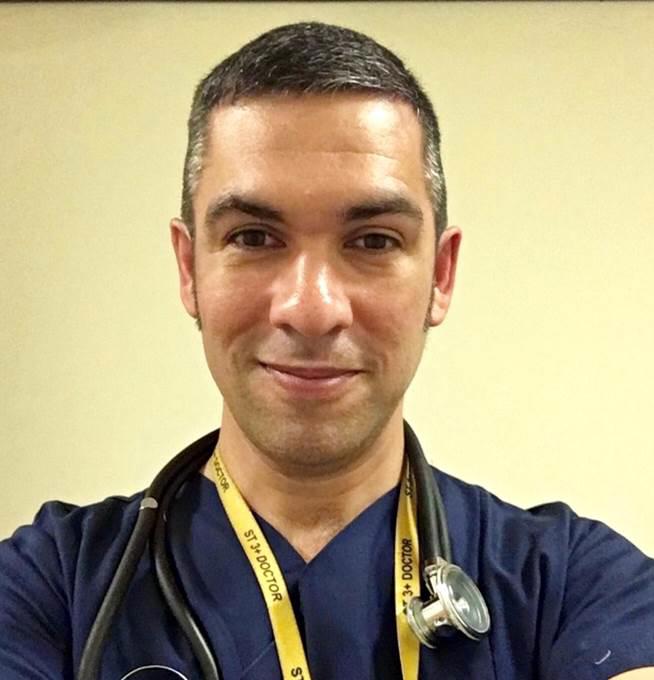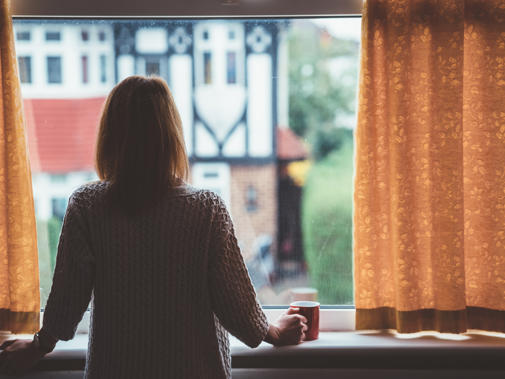 Dr Wilson-Baig
Dr Wilson-Baig
Once the enormity of the situation began to sink in, random thoughts were going through the minds of those affected.
It was interesting to experience how various departments rapidly convened to take control of what was occurring. Senior hospital managers, infectious disease consultants, executives and representatives from Public Health England discussed the impact of COVID-19 on the patients, relatives, and staff, involved.
There were many people who would have come into contact with the patient, including nurses, doctors, pharmacists, healthcare assistants, cleaners, porters, etc. The challenge from senior management was to chart out a timeline, and then contact those individuals who came into contact with the patient. They then had to contact those individuals to inform them to self-isolate as advised by Public Health England. This included me.
For those of us who had to self-isolate, this was going to be a challenging time, especially as none of us were aware of what to expect from our perspective or the effect this was going to have. For those at work this was going to be a demanding time in terms of what burden the process of self-isolation will have on the NHS and ourselves.
The immediate issue from the organisation’s perspective was how the rotas were going to be covered, now that 20 nurses, eight doctors and a pharmacist were having to self-isolate. This is where senior management came into their own, working together to get through this tough period. Little did we know, that in time, things were going to get worse.
Medical and nursing rotas were rewritten while those who were not self-isolated came together to fill gaps that had become vacant.
As the COVID-19 crisis continued to amplify, our rotas were torn up and an emergency roster created so we can join an emergency COVID-19 rota to look after critical care and emergencies across the trust. Healthcare staff may have to be deployed into other specialties to cope with increased pressures.
Naturally there will be unease from some healthcare staff who might feel uncomfortable in an unfamiliar environment. For example, there was a GP trainee who asked me if I could send them some articles on how to manage a ventilated patient. I reassured them that they would not have to do this, and a procedure would be in place for trained individuals to manage such cases.
As the regulatory bodies have emphasised, no one will be asked to work outside their competencies. At national and local level, plans have been implemented to prepare for the strain the NHS was about to face. I would like to think we have learned the lessons from Italy and Asia and organisations were putting those lessons into place.
When we were asked to self-isolate, we were not aware how this was going to affect our training in terms of our competencies, exams, and progression through our chosen specialties. This was a period of enforced leave that we had no control over. In addition to this, there was the uncertainty on the logistics on how this leave was going to be documented on our record. There was confusion as to what was required in terms of forms from the individual trusts and lead employers.
Initially we were required to get a sick note from our GP to account for our leave. However, there was a feeling that by obtaining a sick note, we as trainees would be accepting that we have been sick, when in fact we have not.
Additionally, at the time when we were self-isolating, the logistics of getting to the GP would not have been easy. Fortunately, it seems that the various organisations involved have realised that we are in unprecedented times and the rulebooks may have to be discarded. This after all is an occupational health issue and one of pandemic proportions.
In terms of our training, the colleges have been very supportive. They have been in regular contact as have the schools representing our specialties. The lines of communication have been open throughout with constant reassurance. Exams have been postponed and fees refunded.
Considering what has happened, there is a massive training opportunity here. There will not be many trainees who will have experienced anything like this. The nearest I have, was when environmental health were involved with a possible case of Listeria in a group of people who had travelled from Australia to visit the Royal Welsh Show in Wales. This experience has provided valuable experience in how outbreaks are managed at various levels from the ground to senior management at national level.
I cannot stress how important was the issue of communication for me. We were one of the first cohorts of healthcare staff to be self-isolated when little information was available. Personally, I found social media and communication apps such as WhatsApp very helpful. Those who were self-isolating used these mediums as a source of morale boosting information and entertainment. There was a sense of welcome camaraderie during this trying time. By the end of isolation (11 days in our case as guidance from Public Health England had altered), we had exchanged 4,500 texts and the stats from my phone revealed that my usage had gone up by 244 per cent from the previous week.
However, as time went on and as senior health officials got a better understanding of COVID-19, further information was being cascaded to us trainees from the lead employer, individual trusts, medical royal colleges, and various specialty societies. In addition, there was a dearth of information being published on social media sites, the media and burgeoning WhatsApp groups.
When I ceased self-isolation, colleagues told me of waking up to hundreds of messages on their WhatsApp groups. I could feel a sense of information overload. Colleagues were struggling to keep up with what was being presented. At work a consultant has set up a group so that only ‘official’ information will be cascaded to the trainees. It is read-only, so people will not have to put up multiple ‘thumbs-up’ or ‘smiley-face’ emojis! This is a sensible route to take as there is only so much we can read.
What has been useful is the creation of simulations at work on how patients with COVID-19 should be managed. As this is a completely new scenario, algorithms are being designed with the involvement of everyone in the department. There is a true sense of multidisciplinary teamwork from the individuals involved.
The practicalities of self-isolation are dependent on the individual’s circumstances. Those living on their own might find it easier in terms of logistics compared with those with families. Families may find it challenging to manage the change in routines and things can get upsetting, especially if children are involved.
On the positive side there are people to talk to at home unlike those who are living alone. The rules have changed from when I started self-isolating. Initially self-isolating meant being stuck in your room. Now it means that I can go into the garden, especially as I was well.
The challenging thing for us was how we could get our groceries etc. Cue internet shopping and, friends and family. However, there are stumbling blocks. For example, deliveries could only be left on the doorstep as no contact was allowed. Because of this, medicines or alcohol could not be delivered as a physical ID of the recipient was required to be seen by the driver.
When it came to entertainment, there was Amazon, Netflix, gaming, and good old-fashioned pastimes like jigsaws. Exercise was an interesting concept. This provided relief from the constant domination that is COVID-19.
At the beginning of my self-isolation we were not allowed outside the house even if we were well. So, it was simple press-ups, pilates, stair-reps, or a ride on the exercise bike. All when no one was in the house. Now the chief medical officer has highlighted the importance of exercise and recommended that if we are well, we should go for a walk in the park.
Mental health and wellbeing is a really important consideration. It can be frustrating being isolated. We are social beings who are encouraged to value the time we spend together with others, and yet this is now being asked of us. While there was the solace of texts, FaceTime, Skype and family, there is the risk of mental health deteriorating while in solitude.
It is important to have structure to the day as you would while at work or carrying out your daily business. Many people successfully work from home so it can be done. Mental health charities such as Mind are very useful and there is always a listening ear.
Noamaan Wilson-Baig (@LeDyslexicMedic on Twitter) is an NIHR academic clinical fellow in anaesthesia in the North West Deanery.

